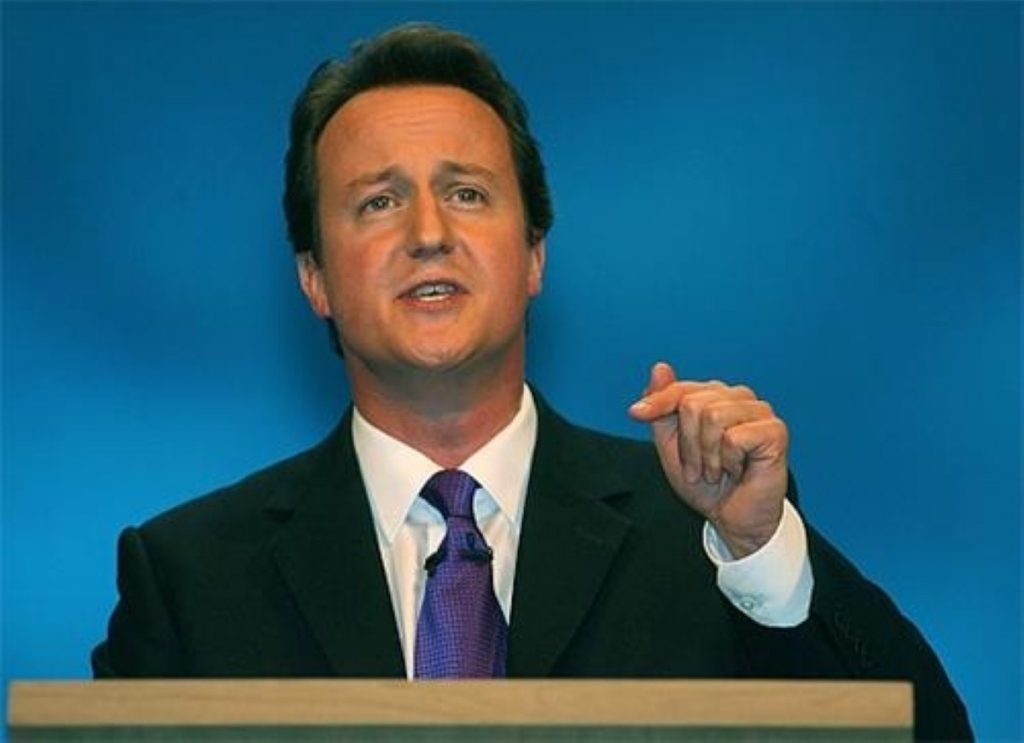Cameron: Blair using politics of fear
David Cameron today accused Tony Blair of using the politics of fear to cover up his failures in nine years as prime minister.
The Conservative leader attacked Mr Blair for abandoning the vision, hope and ideas for change that won him the election in 1997 – and said his party was now the future.
He was speaking as the government announced another five Home Office bills in today’s Queen’s speech, which add to the more than 50 introduced since Labour came to power.
“At the beginning of his time, the prime minister offered this country hope that he would tackle the causes of crime,” Mr Cameron told the House of Commons. “But today we see a complete betrayal of that.”


He added: “Today there is a new dividing line in British politics, between hope and fear. This was the prime minister’s last chance to offer hope for a better society, but instead he used fear to cover up his failures.”
However, Mr Blair hit back with a dig at Mr Cameron’s call for people to “hug a hoodie” or “love a lout”, saying: “Hope is not talking about sunshine any more than anti-social behaviour is combated by love, in inverted commas.
“Hope is what a strong economy gives you, hope is what investment in the NHS and schools give you, and hope is proper measures to tackle the long-term challenges.
“Hope, true hope, is about tough decisions – the right honourable member [Mr Cameron] has never taken a tough decision in his life.I may be going out, but on that performance he’s not coming in.”
Today’s Queen’s speech made clear that “strong, secure and stable communities”, tackling terrorism and “putting victims at the heart of the criminal justice system” were key priorities in the next parliamentary session.
The five new Home Office bills cover immigration, offender management, criminal justice, organised crime, serious fraud and the tribunal service, and although there is no terrorism bill, ministers have pledged to look again at current powers.
But the Tories are not the only ones to have already attacked the new laws, and the proposal to dispense with juries in serious fraud cases, on the basis that they are often extremely lengthy and complex, has attracted particular attention.
“The principle of trial by jury is at the heart of our judicial system,” said Liberal Democrat constitutional affairs spokesman Simon Hughes, who pledged to oppose the bill when it is debated in parliament.
“While there may be some need for different procedures to deal with complex fraud trials, the final decision as to whether someone has been honest or dishonest in a serious case should always be one for a jury.”
Human rights group Liberty also opposed the measures and noted the absence in today’s announcements of how to make terror trials fairer, for example by introducing the use of intercept evidence, or how to compensate terror victims.
“It seems that the new home secretary thinks his department is perfectly ‘fit’ for the ‘purpose’ of churning out more empty legislative sound bites,” said director Shami Chakrabarti.
“Tough talk brings rough justice. Rough justice if you’re evicted because your big brother’s been in trouble; rough justice when you’re accused of serious crime and denied a jury trial; rough justice when migrants are always equated with crime.”












